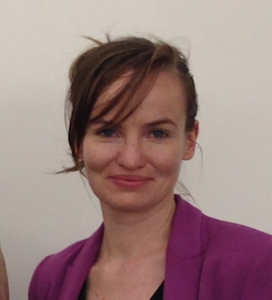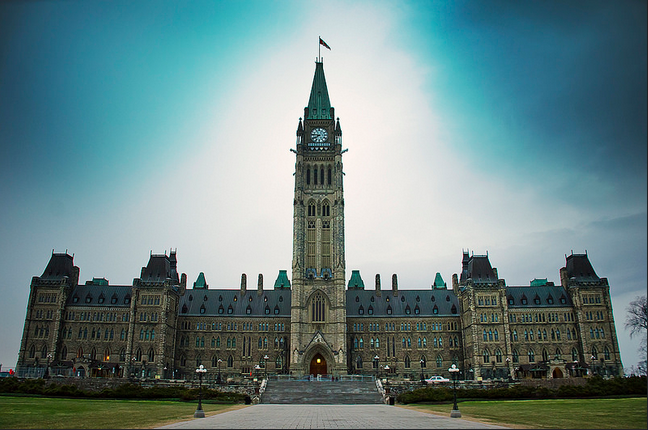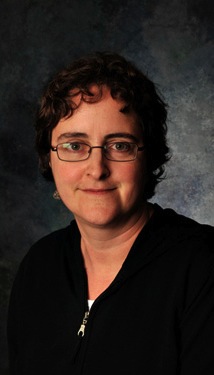
Geothink researcher Daniel Paré examines design-reality gaps in Canadian municipal open government platforms.
By Drew Bush
Earlier this month, Public Sector Digest’s first Open Cities Index ranked Canada’s municipalities according to their openness in supplying municipal data online. The index examined the number of data sets available in three areas of accountability (e.g. elections or budget data), innovation (e.g. traffic volume or service requests), and social policy (e.g. crime rates or health performance) for 34 Canadian cities. Find more details on this index in a previous Geothink.ca story.
But this type of examination represents only one aspect of a city’s openness. Geothink researchers have cautioned that one must consider each city’s goals in making datasets available (as well as tracking how they are used) when assessing the openness of a city. City platforms that utilize open data, sometimes referred to as e-government, are often hailed as a panacea for making government transparent and the political process more open and inclusive. Such pronouncements have accompanied the digitization of government records and data since the 1990s.
Geothink.ca recently sat down with one Geothink researcher to assess the validity of this claim, the downsides of e-government, and to discuss his research on the topic. Daniel Paré is an associate professor in the Department of Communication and School of Information Studies at the University of Ottawa where he also serves as an associate director at the Institute for Science, Society and Policy. His research focuses on the social, economic, political, and technical issues arising from innovations in information and communication technologies in developing and industrialized countries.
Geothink.ca: So tell us a bit about your current recent interests right now, and what you are most excited about in your work.
Paré: What I’m interested in looking at is the points of convergence and divergence between the rhetoric surrounding e-government in the late 1990s early 2000s with much of what we’re hearing about open government data and open data and the promises and perils and pitfalls and such, and sort of contrasting those two. In large part, it’s motivated by the fact that one of the things that I’ve been struck by just sort of informally is it just seems to me that there’s just tremendous parallels almost to the point of sort of repeating the same sort of mantras that we were repeating a little more than 10 years ago what with regards to e-government.
So I want to see the way that that holds. It plays into this whole idea in terms of the myths that are associated with technological change in terms of the liberating potential, the progressive potential, these sort of technological developments. So certainly in the area of open government data, the question becomes, or the issue is sort of, we hear lots of rhetoric about political progress and economic progress and such, and I basically want to suss those things out.
Geothink.ca: What are the differences between citizen-government and client-government interactions and what do you think the transformation toward open government is doing for both of those audiences?
Paré: Well, if we go back to e-government, at the time that e-government came on to the scene, part of the debate was between e-governance and e-government. And a lot of the early discourse and rhetoric around there was focused on the democratic potential. So citizens would be able to now access information much more easily— government information—become more engaged with their government on multiple levels, and, in order to simplify here, everything would become rosy. The underlying assumption being basically that with the ability to have access to information, citizens would seek out that information and would become more engaged in the political domain as a result of that. And almost sort of, in its more extreme cases, [it was] presented almost as sort of linear, ipso facto, done deal.
It was quickly identified, that in many ways e-government wasn’t about e-governance per se, certainly not in the political sense. It was about delivering services more effectively to citizens but in the role of clients essentially. Nothing wrong with that but that’s fundamentally different from political engagement as it’s normally understood. So, yes, it’s fantastic that, yes, I can file all my taxes online, or that we can get information, or that we can renew our licenses, or that we can have access to that information, but that’s more of a client service based implementation and usage than a sort of political domain.
If we jump forward now to the recent years in terms of open government and open data, we have a number of sorts of different discourses that are playing around. Part of it is to say that yes there’s open data and open government—bearing in mind that they’re separate things—that, you know, with access to this information, that fosters greater transparency and hopefully greater transparency [fosters] less corruption, more effective government, etc. The other aspect of that—complementary aspect—is sort of the economic angle saying well if people have access to government information they can harvest this information, they can come up with new sorts of innovations whether that be an app or some sort of other product that gets developed as a result of an analysis of the information that’s now available to them. And this then becomes a means or mechanism for fostering economic growth.
So you have those discourses or those narratives playing out. Now the issue, or one of the many issues, is the fact that realizing those benefits depends on a whole host of factors. And [governments] are dealing here with issues in terms of how do [they] organize and respond to demand, how do [they] organize and respond to supply, and how do [they] organize and respond and try to promote innovation. So you have those sorts of three things playing out. And so to come back to what I mentioned earlier about notions of myths around technologies…we tend to do away with, narratively, with the complexities and ambiguities that are associated with these processes. And so if we say, yes, you know, open data and open governance is a fantastic tool for promoting transparency and enhanced democracy, well possibly, yes, and possibly, no. We need to unravel that. It’s not a done deal. But the myth of that rhetoric is a punchy message. Likewise if we say, yes, well open data and open government is fantastic because it can spur economic growth and all sort of innovations. Fair enough. But again that covers up the challenges and complexities that are associated with that.
Geothink.ca: How does this relate to gaps you are seeing in how platforms are designed for e-government and their actual implementation in terms of how they are used?
Paré: In other work that I’ve done, we do a lot of stuff around the ideas of design-reality gaps. And so the notion there being that, you know, we may design a particular platform with a particular purpose in mind. And it has particular potential but then when we look at the implementation of a particular platform often times it has a host of unintended consequences. There is no guarantee that it will be used in a particular way. And so the opportunities and potentials that were meant to be reaped don’t materialize, right?
In some of those cases that might be linked to the platform itself and in others cases it might be linked to organizational factors. So we can think in terms of a government information system. If we are going to put in a new information system in the government bureaucracy, for example, the assumption is that it will enhance interdepartmental exchanges of communication and information. What that view overlooks is the turf battles between departments and agencies within government. The idea there, in this example, being that it’s not because we have the effective communication system in place that it will actually be used in an effective manner because there are other sociopolitical and cultural factors in that regard.
In the case of open data and open government, we tend to see for example a lot of claims about, sort of, hey, it’s great this information is online people are going to use it. But one of the early challenges that we encountered was, say, well those who can actually use it and do something with it are a very limited and niche segment of the population…The raw data—the raw information that’s there—is in such a form that people don’t know what to do with it or how to manipulate it. So on the one hand, yes, it’s open data the information is there, on the other hand, great, it’s there but what do I do with it if I don’t have the computer savvy or the statistical skills to deal with the information that’s there? So those are those sorts of gaps and complexities that I’m interested in.
Geothink.ca: How does your work relate to Geothink’s research goals and what do you think of the partnership?
Paré: Great question. Geothink relates to this for me in the sense of the open data, open government aspect of it. I had come to this project, Geothink, sort of as an outsider. For me, Geothink, very early on before I knew very much about it was oh, you know, you’re talking about geographical information systems. Which I’ve since learned we’re moving well beyond that. So for me, the issue in terms of Geothink and Geoweb, it fits into issues of open data, open government and clearly the geo part sort of entails a locational element in terms of locational types of data.
Tweet your ideas on this interview to Daniel Paré @DJ_Pare
If you have thoughts or questions about this interview, get in touch with Drew Bush, Geothink’s digital journalist, at drew.bush@mail.mcgill.ca.




